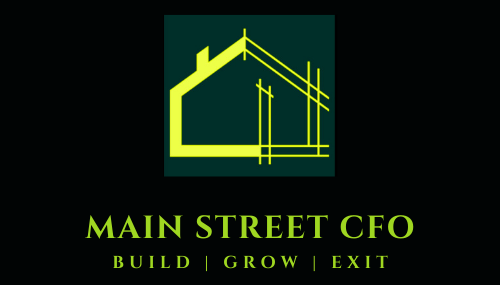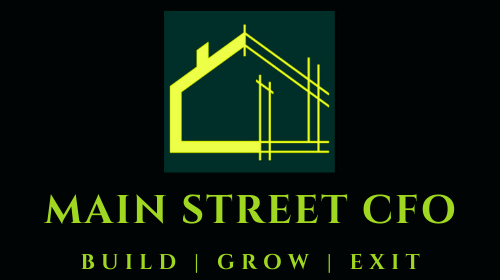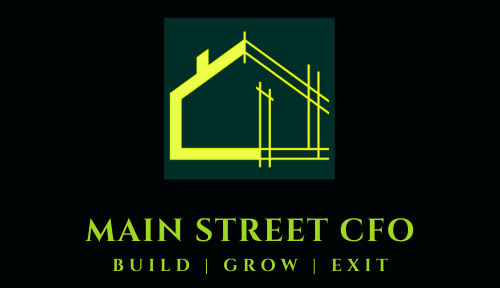The Right Sponsor > The Right Deal
Why the Right Sponsor Matters More Than the Right Property in Real Estate Syndication
In the world of real estate syndications, investors often spend weeks combing through offering memorandums, spreadsheets, and glossy photos of beautiful assets. They review cap rate comparisons, study pro formas, and obsess over rent comps.
Underwriting the property is important, but the true success of a syndication begins and ends with the sponsor, not a specific deal.
Main Street CFO serves syndicators and investors nationwide. We’ve seen firsthand that the right sponsor can turn an average deal into a profitable investment. Conversely, the wrong sponsor can destroy value even in a perfect market.
In this article, I’ll explain why the sponsor deserves the bulk of your due diligence and provide you with a system to vet them like a professional investor.
A. The Sponsor Is the Business Plan
When you invest in a syndication, you’re not buying a property, The reality is, you’re buying into a business plan and the sponsor behind that plan.
The sponsor is the decision maker. The limited partner is technically investing in a security.
The sponsor or general partner decides:
- What type of assets to acquire (multifamily, SFR’s, office, industrial, etc.)
- How to structure debt and equity
- Investment strategy (buy and hold, buy and flip, development, etc.)
- Exiting (when and how)
Two identical properties in the same market can produce vastly different results depending on who’s making these decisions and the experience, strategy and team they bring into the plan.
A skilled sponsor understands both capital management and operational execution, balancing investor returns with cash flow, tax efficiency, and long-term value creation. They know how these “levers” need to be positioned depending on the type and investment strategy being employed.
B. The Right Sponsors Bring the Right Deals
What many investors spend their time doing is chasing the “perfect property” when the reality is that great sponsors find and/or create them.
The right sponsor:
- Sources on and off-market opportunities through trusted broker and owner networks they’ve developed over time
- Negotiates favorable financing and partnership terms as needed
- Knows when to walk away when a deal doesn’t fit the plan
It’s very important that a sponsor refrains from chasing deals just to keep their pipeline full.
C. The Sponsor Manages Risk
Every project has its own set of obstacles and challenges. Interest rates change, tenants default, renovations/contractors run over budget/time and markets can adjust.
That’s when the sponsor’s experience, track record and ability to “shift” become critical.
From our perspective, here’s what separates the great from the average:
- Cash Flow Management: The ability to preserve liquidity and avoid capital calls during lean periods.
- Accurate, consistent investor reporting: Providing clear, consistent investor financial models that build trust even when things aren’t perfect. This includes monthly/quarterly reporting and K-1’s, both in a timely and accurate manner.
- Proactive Tax Strategy: Proactively managing tax strategies (cost seg, bonus depreciation, refinancing, and 1031’s, etc.) to protect investor basis and after-tax returns.
- Discipline: Knowing when to pivot, refi, or exit to ensure preserve capital.
D. Track Record Tells the Real Story
Forget professional marketing flyers…ask for verifiable proof:
- How many projects have they taken full cycle? What’s their overall cycle experience?
- Assets under management?
- Experience in this market, type of project, number of units?
- Unanticipated capital calls?
- Communication when a property goes off the rails?
- Key person issues?
Also, dig into the team behind the sponsor. Are they supported by professional accounting, tax, and CFO oversight or are they managing the finances in-house with limited transparency and staff?
From our experience providing outsourced accounting and CFO services to syndicators, financial infrastructure often separates professional operators from hobbyists.
E. The Right Sponsor Aligns Interests with Investors
Alignment of interests is key. Ask sponsors:
- How much of their own capital are they investing?
- Is the bulk of their compensation through performance or fees
- Is reporting done timely AND accurately?
Sponsors should view investors as true partners not
just sources of capital. You’re building a relationship; you want a sponsor who looks at it the same way.
F. The CFO’s Perspective: Sponsor Quality Is a Financial Metric
At Main Street CFO, we’ve analyzed hundreds of syndication financials. Time and again, the sponsors who outperform share common traits:
- Strong internal accounting and cash management
- Data-driven acquisition discipline
- Transparent investor reporting
- Collaboration with tax and financial professionals
When investors focus solely on IRR projections and ignore sponsor quality, they’re evaluating only one side of the equation, but the real risk is in the execution. And that is on the sponsor.
Final Thoughts
In syndication investing, property quality does matter. But sponsor quality determines outcomes.
A sponsor with the right financial systems, ethical standards, and operational discipline can consistently deliver results regardless of what is happening in the market.
So always remember, you’re not investing in a property. You’re investing and
PARTNERING with a person and with the right person comes the right projects.
About Main Street CFO
Main Street CFO provides fractional CFO, tax strategy, and back-office accounting services tailored to the real estate syndication industry. We help both general partners and limited partners. We help sponsors build financially sound operations and we give investors confidence through accurate, transparent reporting and deal evaluation.
Learn more at www.mainstreetcfos.com or contact staff@mainstreetcfos.com for a consultation.












